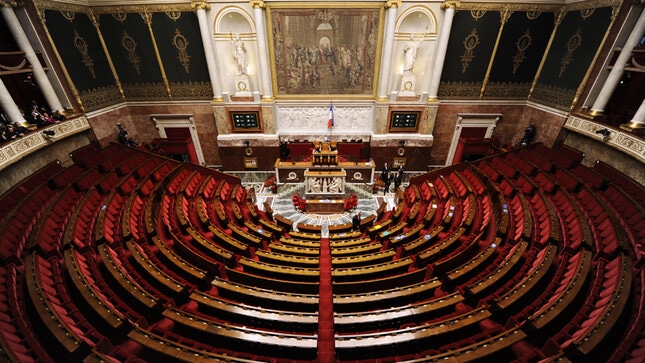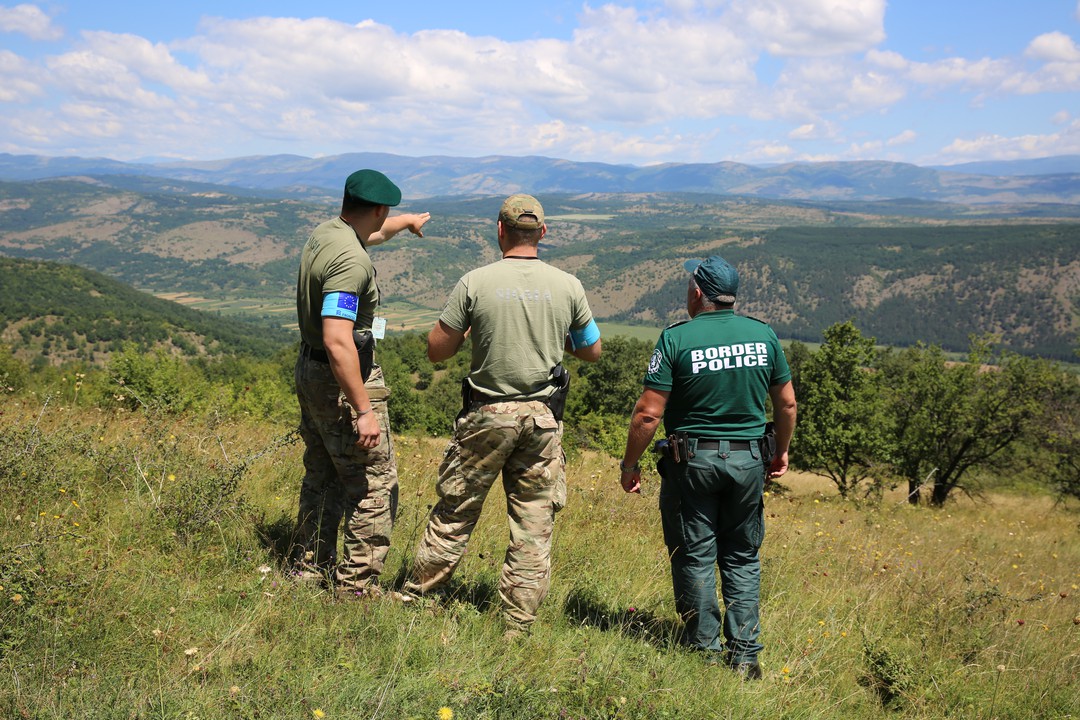The Covid-19 crisis is setting in, democracy is retreating, the Commission is looking elsewhere
(B2) The measures taken by several European countries in the name of Health make a collateral victim: the rule of law and European-style liberal democracy

If the appearance of Covid-19 in February-March 2020 was a surprise for everyone and required improvised and emergency measures, this is no longer the case today. Drastic measures to curb this health crisis, if justified, can largely be anticipated. And nothing justifies the absence of democratic control, as is the case today in France as in Belgium, for many months.
On-the-fly measurements
Most of the time, today, measures are taken, on the fly, by the executive, in the aftermath of defense councils or other consultation committees, the composition of which remains a mystery, without real consultation (in the sense of prior information, with a period of reflection) of the various partners (social, economic, political) and without any decision of their national parliament.
Petrified Parliaments
National parliaments, like the European parliament, seem petrified under the yoke of the crisis. Everyone is afraid of appearing, by claiming respect for the rule, as an inconvenience in what has become like a national wartime cause, the fight against the epidemic. However, despite all the words, we are not at war. At no time, moreover, have the governments used in their existing constitutional arsenal this provision, which is ultimately fairly framed.
A large part left to the arbitrary
These decisions, as soon as they are taken, are immediately applied, empirically, leaving a large part to arbitrariness. What is a " compelling motive justifying the crossing of borders (Belgian side) and what is not? Or an essential motive and what is not? It is up to the police authorities, or even to the simple agents of the airline companies, to control this, according to their common sense or their mood of the moment. Which is very tricky.
The principles of law flouted
Certain fundamental principles — derived from the European Convention on Human Rights (ECHR) or the Charter of Fundamental Rights — are clearly 'set aside', for an indefinite period: freedom of assembly and association (art. 11 ECHR), the freedom to manifest one's religion (art. 9 ECHR), the right to education, to exercise a professional activity (art. 8 ECHR), respect for private and family life, etc. are drastically limited, not to mention the freedom of movement (with a curfew at 18 p.m. in France or authorizations to leave the country in Belgium).
No exception clause activated
The exception clause of the European Convention on Human Rights, the famous article 15, has not been triggered, except by a few countries. The continent's old democracies did not dare for symbolic reasons. " A real quarantine » writes the professor emeritus of the University of Montpellier, Frédéric Sudre, one of the best specialists of the ECHR. " A rule of law on a ventilator denounce with one voice the Belgian lawyers (1)
The Schengen code violated
The European authorities are barely consulted. Thus the restoration of certain border controls was not notified by Paris to the European Commission, as required by the Schengen Code (only one notification is active, under terrorism). Similarly, the Belgian measures, outrageously discriminatory vis-à-vis European employers, did not arouse more than a lip movement from the European executive.
The risk of a delayed effect
The distortions of democracy, the claws given to the rule of law are certainly, for the moment, tolerated, accepted by the population. But they still do damage, invisible. They could produce a few outbursts of anger, as unpredictable as they are eruptive, and a possible a posteriori effect in the electoral deadlines of the years to come (such as the migration crisis of 2015-2016). They lead to a serious weakening of the standard which could be increasingly challenged over time.
A question of legitimacy
Moreover, the tacit suspension of parliaments in several countries gives strong arguments to opponents of parliamentary democracy, both inside and outside. What will be the European legitimacy to protest, tomorrow, against the suspension of certain democratic rights in certain countries of the Union (Hungary, Poland), as well as outside (Russia...), if it is not capable of enforce internally what is the basis of democracy: control of the acts of the executive by an elected assembly, and respect for the basic rights included in its various documents...
(Nicolas Gros-Verheyde)
The European Commission turns a blind eye To say that the issue of border closures upsets the Commission is an understatement. " The European Commission has proposed recommendations, in order to limit as much as possible the excessively detrimental effects on free movement. If we want to strongly discourage non-essential travel, we must avoid border closures. [...] The measures must be proportionate and non-discriminatory. But will she act? And does she want it? Not sure. " We will examine the measures by a number of Member States. We have concerns, questions about the nature of the measures and their scope. We are in contact with the countries concerned to have clarifications on this subject.. This is how one of the spokespersons for the European Commission responded on several occasions when questioned by journalists (including B2). In clear words, this means: we are well aware that there are violations of the Treaty, we investigate them as slowly as possible, so as not to embarrass the States. And we will only issue our opinion when it no longer has any real effect (when the measures are lifted). It is the health rule that in fact takes precedence, as recognized by the European executive. " Member States strive to keep the state of health under control. NB: one can also wonder if the nationality of the European commissioner in charge of Justice, Didier Reynders, like his political proximity to the current government (liberal, like the Prime Minister), does not come under the 'conflict of interest'.

